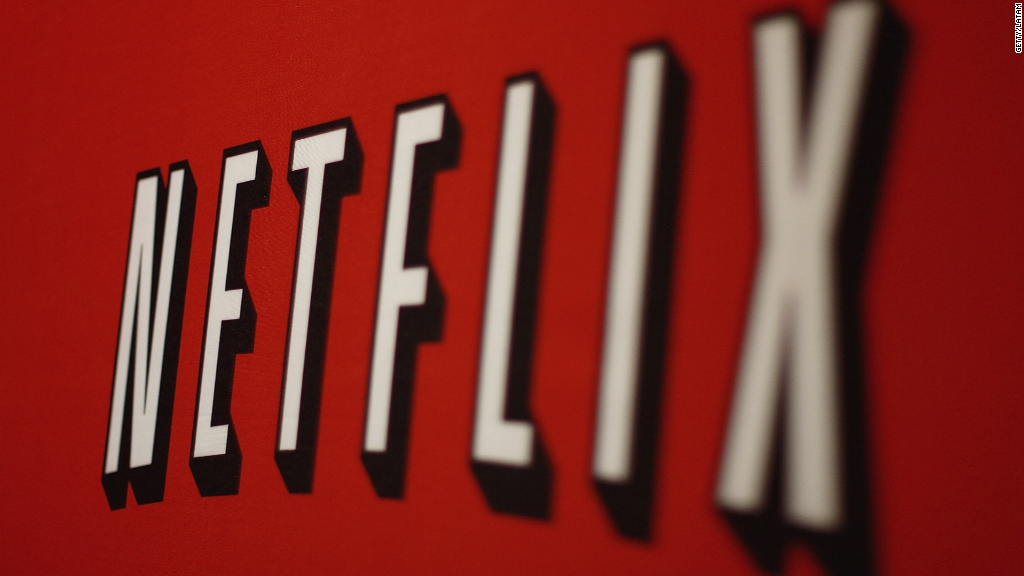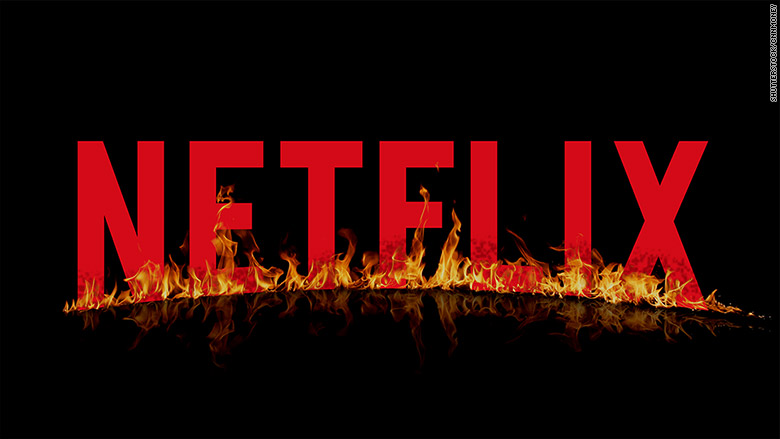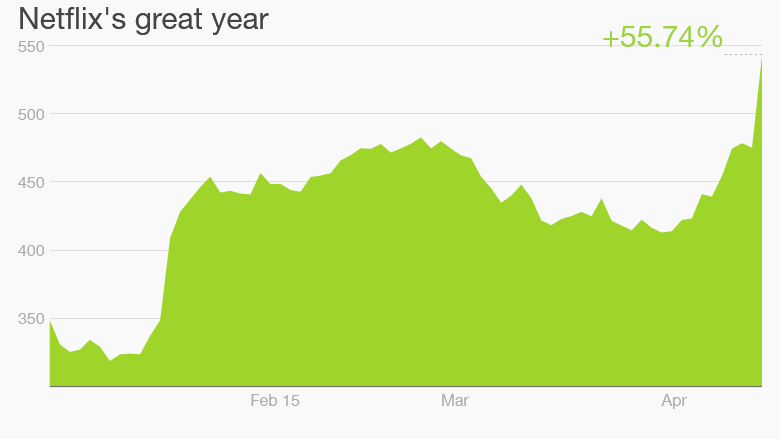
Netflix stock traded for under $9 when the company went public in 2002. Now it's worth over $500 a share.
The company is on fire. One analyst now predicts Netflix (NFLX) could hit $900 a share by next year. The reason? Millennials (and a lot of other age groups) talk about watching Netflix, not TV.
"Netflix subscribers -- nearly 40% of TV households in the U.S. -- love the service more than TV," Barton Crockett, an analyst at FBR Capital Markets, wrote in a note.
That shift is helping the bottom line. Netflix crushed its earnings Wednesday. It added 4.9 million subscribers in the first quarter this year, well above the 4 million it added in the same quarter a year ago. The stock shot up 18% Thursday morning and is the best performer by far in the S&P 500 this year.
Related: Netflix wows Wall Street with strong subscriber growth

The Netflix migration: FBR and ClearVoice Research conducted a survey to ask Netflix users what they thought of it. Half said they spend more time on Netflix than traditional TV, and 57% said they like Netflix more than TV. Not bad for a company that opened for business in 1998.
The survey results were one of the main drivers for Crockett to update his projection that the stock could shoot to $900.
Investors and analysts aren't just giddy about Netflix's potential among Americans -- its user base abroad is expected to grow by a lot too.
While Netflix gained 5.8 million users in the U.S. over the past year, it got 8.2 million new subscribers abroad over the same time. Netflix is also one of the first American companies to operate in Cuba, which it reported during the quarter.
Other analysts raised their one-year price estimate for Netflix, but not nearly as much. Earlier this week, Cantor Fitzgerald raised its estimate on Netflix to $500 -- which Netflix quickly surpassed Thursday.
Related: Why Netflix will have a tough time in China

Headwinds: The only drag for Netflix these days is the strong dollar. All the foreign growth for the streaming service means Netflix must exchange those profits abroad into U.S. dollars. That's been problematic lately as the dollar keeps going up in value. Netflix actually missed earnings estimates, but investors are shrugging it off since it was mostly caused by the dollar's surge. That should dissipate over time.
The bigger concern long-term for Netflix is the rise of other streaming services. You can now sign up for HBO, for example, without needing a cable subscription. But Netflix is starting from a huge position of strength.


